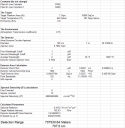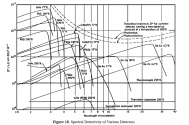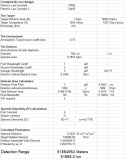The fifth package of European sanctions imposed on Russia in connection with the military operation in Ukraine imposes a ban on the supply of materials for the production of microcircuits, in particular silicon, to the country. In the Russian Federation there are deposits of this material and the production of silicon wafers. However, it is only suitable for special-purpose technologies, and wafers for civil electronics were purchased in Europe. Thus, the sanctions will hit only the producers of civilian products, but not the defense order, which the EU originally counted on.
"Kommersant" got acquainted with the list of goods prohibited for import from Europe to Russia in accordance with the fifth package of sanctions , published by the EU Council on April 8. The list includes raw materials needed for the production of microcircuits, in particular, silicon (containing at least 99.99% pure raw materials by weight) is one of the best semiconductors. A ban is also introduced on the supply of equipment for the production of microcircuits and quantum electronics. Imported goods were selected based on whether they contribute to the improvement of Russia's military and technological potential, the document says.
According to Kommersant's interlocutors in the microelectronics market, foreign manufacturers of equipment and materials for the manufacture of semiconductors have already stopped deliveries since the beginning of the conflict in Ukraine. We are talking about equipment (photolithography, etching installations, etc.) of European, American and Japanese production (ASML, Applied Materials, Canon).
But the fact is that silicon wafers for chips themselves are not produced in the Russian Federation, Kommersant's interlocutors say. According to them, raw materials ready for printing circuit boards were purchased just in Europe.
The manufacturer of Russian chips confirms that when creating processors according to 90 nm standards, companies use imported silicon: “After the direct ban was introduced, only China remains an alternative.”
The main consumer of silicon wafers for the further production of chips is the Mikron plant in Zelenograd. According to Kommersant's sources, the company has been trying for the past few years to replace European materials with Chinese ones. Micron declined to comment.
At the same time, there are silicon deposits in Russia, as well as companies involved in its processing. The largest Russian mining companies are considered to be the Silicon Group (Bryansk), Rusal Kremniy Ural (part of Rusal; located in the Sverdlovsk region) and Solar Silicon Technologies (Podolsk). According to the website of the Silicon Group, in addition to end devices (power modules, integrated circuits), the company also produces silicon wafers.
Silicon processing enterprises solve the problems of various sectors of the economy. Rusal Silicon Ural resumed the production of raw materials in July last year, but the manufactured products must be supplied within the company, where silicon is used to produce primary aluminum alloys ( see Kommersant dated July 5, 2021 ). Solar Silicon Technologies produces single-crystal and multi-crystal silicon wafers, primarily for the solar energy market. Also, NIIP Rosatom is engaged in the production of high-purity single-crystal silicon. The listed companies did not respond to Kommersant's request. The same was done in the Ministry of Industry and Trade.
All enterprises are interested not in silicon itself as a starting material, but in wafers, and in the case of microelectronics, their suitability depends on the purity of silicon, the quality of surface treatment, and the concentration of defects, said Arseniy Brykin, director of the Basis Consortium Association of Developers and Manufacturers.
There are manufacturers of silicon wafers in Russia, but they mainly provide the production of microcircuits and discrete semiconductors for special purposes, Ivan Pokrovsky, executive director of the Association of Russian Developers and Manufacturers of Electronics, explains: “For relatively modern products of the 180–90 nm level, they do not meet the technical requirements.”
As a result, only manufacturers of civilian products, such as Mikron and, if launched, NM-Tech, will suffer from sanctions. It is impossible to provide civilian production with Russian silicon in the near future, this will require significant investment and time, Mr. Pokrovsky believes. In addition, due to sanctions, Russian chip manufacturers have been cut off from Taiwanese factories ( see “Kommersant” dated April 6 ), and hundreds of thousands of processors already paid for simply run the risk of not reaching them.



